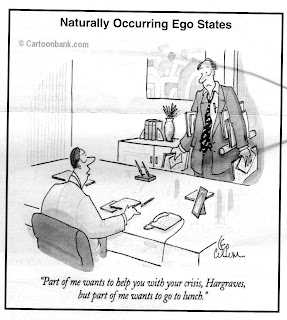
Poor mental health is becoming as big a problem as heart disease. It must not be taboo in the office
It is known in medical circles as the Oscar Pistorius question: if an athlete with no legs can compete at Olympic level, why should an employee with a history of mental illness not be allowed the chance of holding down a decently paid job?
Richard Saville-Smith is posing precisely this question at an industrial hearing in Edinburgh, where he claims that he was dismissed from his high-powered public relations job with Scotland’s tourist agency, despite a track record of achievement at executive level, because of an onset of bipolar disease, or manic depression.
The case is continuing, and the facts have not yet been established. But it is an important test not just of discrimination law, but of civilised values. There is no justification for bias these days against those who carry the burden and the stigma of mental illness.
Indeed the law forbids it. The Disability Discrimination Act specifically protects job applicants or employees from discrimination on the ground of serious mental impairment up to and including schizophrenia. The European Convention on Human Rights included it as recently as this year: no personnel office is unaware of the implications.
